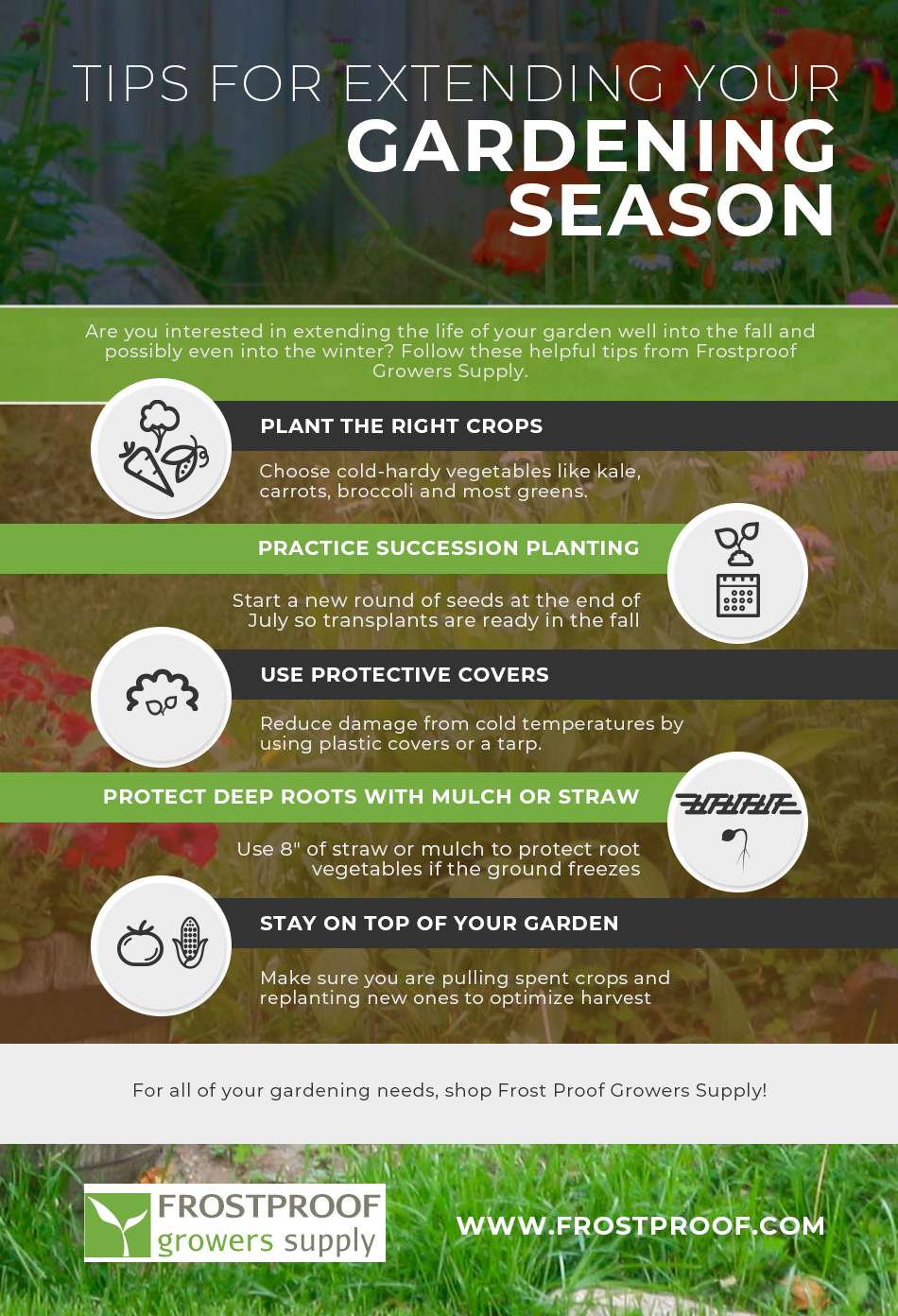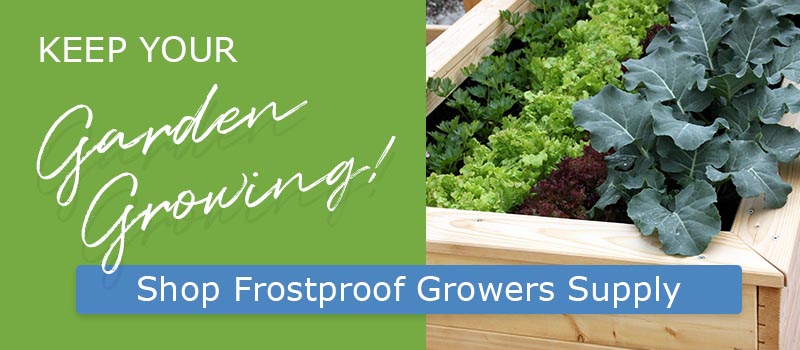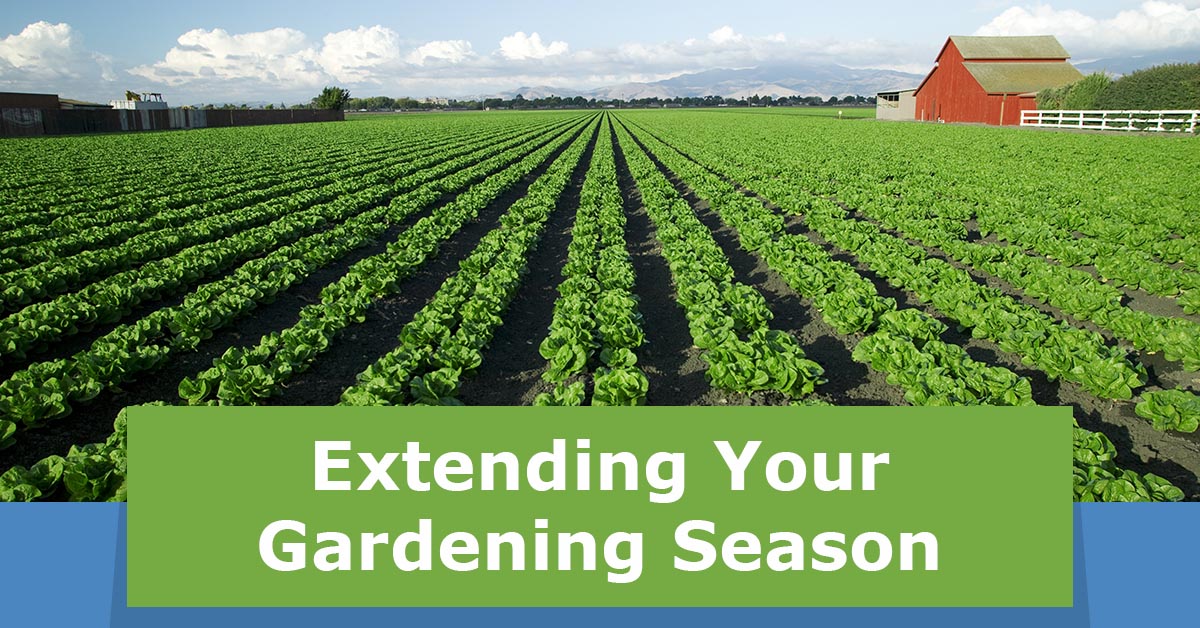
Call us toll free today 800.635.3621
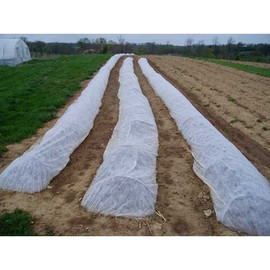 Summer is over, but that doesn't mean it's the end of your garden. You can continue to grow vegetables well into the fall, and even during the winter.
Summer is over, but that doesn't mean it's the end of your garden. You can continue to grow vegetables well into the fall, and even during the winter.
There are several advantages to gardening in colder weather. Most of the pests and diseases that plague plants in the summer are inactive during the fall and winter. Cold weather vegetables protect the soil. Some vegetables, such as carrots and kale, actually taste better after they have been exposed to cold temperatures.
Begin transplants from seed around the end of July. You can get transplants from a nursery or buy the seeds in the spring. Plant them in a cool, shady area and move them to a more open location once they have sprouted and are ready to thin. Keep them consistently moist, but in an area with good drainage.
Many crops are hardy throughout the winter. Kale, collards, and broccoli are good choices to plant in the fall.
Greens, such as endive; escarole; radicchio; spinach; many Asian greens, such as mustards, mizuna, and shungiku (edible chrysanthemum greens); chard; lettuce; and parsley often grow all winter long. Spinach will grow in the fall but not in the winter. If you surround it with mulch, spinach will start to grow again when it becomes warmer in the spring.
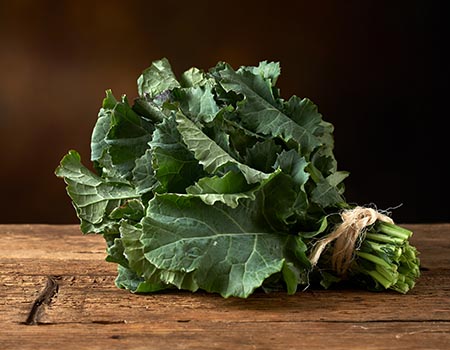
Soil protects deep roots, including leeks, carrots, parsnips, and beets, from the cold. You can leave some of those that you planted in the spring or plant another crop in the summer. Cover them with eight inches of straw or other loose mulch when the ground freezes to protect the roots. This will make them easier to dig up when the ground is solid.
Fall and winter crops need good drainage and fertile soil, just like those that are grown in the spring and summer. Use compost or another organic material and organic fertilizer when you plant your fall garden. Be patient because shorter days and cooler nights will slow down the growing process.
The best way to ensure the success of your fall and winter garden is to create a tunnel of plastic bent into hoops and covered with clear plastic. This will protect the plants better than floating row covers. Be sure not to seal it too tightly, or the sun could damage your plants. An alternative to protect your plants from a hard freeze or ice storm is to cover them with a tarp.
Even though summer is over, that doesn't mean that you cannot continue to enjoy fresh vegetables from your garden. You can extend your growing season into the fall, or possibly beyond.
Check More of Our Gardening Tips
